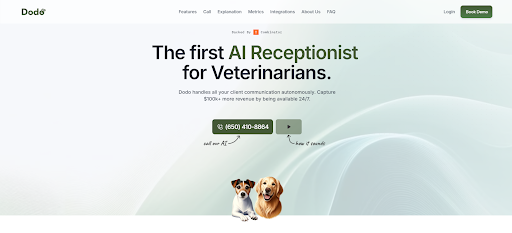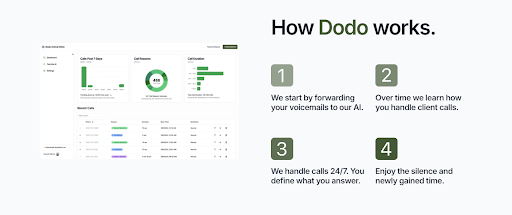The medical front desk landscape is evolving rapidly.
Gone are the days of manual appointment bookings and paper-based patient files, replaced by digital solutions that streamline office management.
This shift isn’t just about modernizing the clinic; it’s about enhancing the patient experience from the moment they walk in.
Now, imagine the convenience of skipping the traditional check-in process, thanks to innovative AI receptionists that handle everything from scheduling to patient intake.
These tools aren’t futuristic concepts but present-day realities in many medical offices, making patient arrivals smoother and more efficient.
NHS leaders are working to reduce the 7.6 million patient backlog by tackling missed appointments.
In 2023, 6.5% of outpatient appointments—about 8 million—were no-shows. These missed slots are a big part of the waiting list problem.
Challenges of Traditional Medical Front Desks
Traditional medical front desks face several challenges that can affect patient care:
The Benefits of AI Receptionists

Introducing Dodo: AI Receptionists Tailored for Veterinary Clinics

Dodo has developed AI receptionists to address the unique challenges faced by veterinary clinics.
The surge in demand for vet services due to the pandemic, combined with high turnover rates among receptionists—one in three leaves their job each year—calls for a solution to streamline clinic operations.
Their AI receptionists manage all aspects of client communication, from answering calls and scheduling appointments to handling patient records and processing cancellations.
This means clinics can eliminate long hold times, confusing phone trees, and missed calls.
Dodo’s technology also helps fill missed appointments on short notice, improves efficiency, and enhances the overall client experience.
This innovative approach reflects the expertise of Dodo’s founders: Julius Hillebrand, who has a background in Engineering from Stanford and PPE from Oxford, and experience optimizing customer service; Dominik Moehrle, a Data Science graduate from Stanford with a track record in healthcare product development; and Tim Reinhart, who studied Computer Science at Stanford and Robotics at ETH Zurich and specializes in automation and AI.
Together, their experience ensures that Dodo’s AI receptionists are designed to meet the real needs of veterinary practices effectively.
How Dodo Works

Dodo’s AI receptionists are designed to make veterinary clinics run more smoothly. Here’s how they work:
With an average turnover rate of 32.5% for veterinary receptionists, Dodo helps reduce these pains by automating repetitive tasks.
Plus, their open API and integration framework connect seamlessly with your daily tools, creating a unified system for better efficiency and cost savings.
How AI Receptionists Work
Tech Stack for Building AI Receptionists for Healthcare Facilities
When building AI receptionists for healthcare facilities, a robust and scalable tech stack is essential. Here are some key components to consider:
Choosing the Right Partner for Your AI Receptionist: Why Specialized Health-Tech Expertise Matters
Thinking about building an AI receptionist for your medical facility?
Keep this in mind: healthcare IT is complex and specialized.
Choosing a general IT company to develop your AI solution could pose risks.
It’s crucial to work with a health-tech company that truly understands the intricacies of healthcare operations.
Only a specialized health-tech partner will have the deep knowledge of healthcare workflows, compliance, and regulations needed to create a solution that integrates seamlessly with your existing systems.
At SyS Creations, we have extensive experience in healthcare IT and a thorough understanding of the regulatory landscape.
We ensure that our solutions not only meet your operational needs but also adhere to necessary compliance standards.
When selecting a partner, make sure they have a proven track record in healthcare technology.
Your AI receptionist will be a critical component of your operations, so it’s essential to choose wisely.




